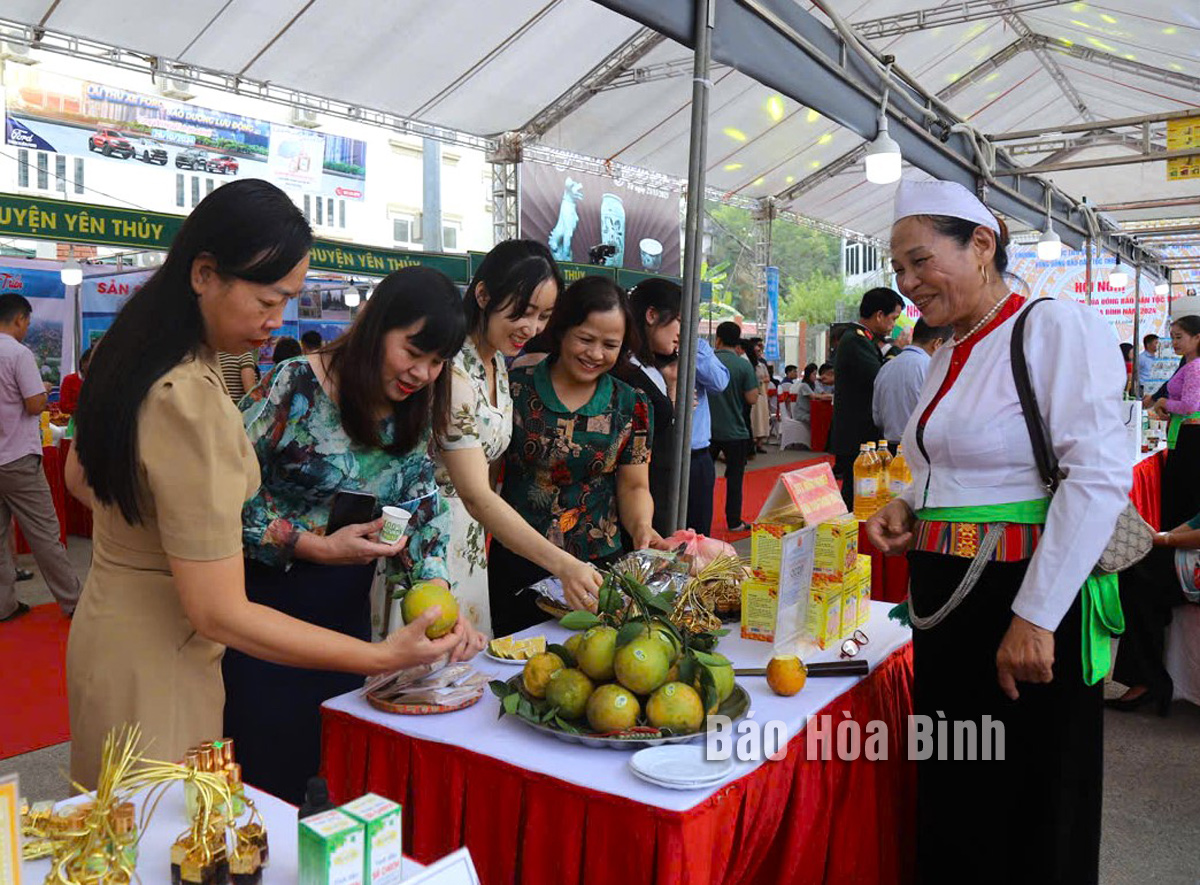
In recent years, Hoa Binh has allocated significant resources to foster cooperative economy, helping ethnic minorities capitalise on their potential and advantages to escape poverty.
Farm produce from Ban Dao Thong Nhat Cooperative in Hoa Binh city attracts considerable public interest at an event promoting ethnic minority and mountainous region products held in November.
An example of the effort has been shown in Tan Lac district’s Quyet Chien commune – a particularly challenging area, with the Muong ethnic minority group making up 99.9% of its population.
In 2008, the province’s centre for applied scientific techniques supported local residents in a trial planting of chayote vines for leaf on 0.5 hectares. In April 2017, the Quyet Chien safe vegetable cooperative was established with 39 members. Then the cooperative has expanded, providing stable incomes for hundreds of member households, with profit now exceeding 400 million VND (15,721 USD) per hectare annually.
The provincial Cooperative Alliance has so far organised 11 vocational training courses for 330 learners from ethnic minority and mountainous regions in fields such as industrial sewing, brocade weaving, and pig farming techniques; and 5 skills training classes on e-commerce, product storytelling, and marketing skills for 131 learners. The alliance has also conducted surveys and developed value chain production plans for products like fresh sugarcane and purple sweet potatoes across districts like Luong Son, Tan Lac, Lac Son, Yen Thuy, and Mai Chau. In addition, nine start-up projects for cooperatives in particularly challenging areas have been implemented.
According to Ha Ngoc Tuan, Chairman of the alliance, these activities have spurred the establishment of cooperatives and collaborative groups within ethnic communities, creating jobs and increasing incomes serving their socio-economic development and poverty alleviation.
As per the alliance’s data, ethnic minorities play management roles in over 320 cooperatives and operate more than 100 collaborative groups.
Mai Chau district has firmly established itself as a standout destination on Vietnam’s tourism map, attracting both domestic and international visitors with its breathtaking landscapes, rich ethnic culture, and warm hospitality. However, beyond its natural and cultural charm, a secure and well-managed tourism environment has added to Mai Chau’s appeal.
As Vietnam enters a new phase of economic and administrative reform in 2025, Hoa Binh province is stepping up its efforts to streamline governance, boost economic growth, and attract investment.
The Hoa Binh provincial People's Committee held its monthly meeting on March 26 to review the progress of key projects, assess budget revenue and public investment disbursement, provide feedback on draft documents for submission to the provincial Party Committee's Standing Board, and discuss other important matters related to the committee's governance activities.
Playing a key role in Hoa Binh province’s economic development, Luong Son district has been focusing on science and technology development, innovation, and digital transformation.
Identifying the application of online public services as a key step in administrative procedure reform and e-government building, Kim Boi district has proactively provided services and supported residents and businesses in accessing and utilising full-process online public services promptly and efficiently. The locality aims to lift the rate of end-to-end online public services to over 90%, with all officials and civil servants handling tasks in the digital environment.
Nguyen Anh Tuyet, hailing from a family steeped in the ancient art of herbal medicine, is transforming local medicinal herbs into high-value concentrated extracts, elevating their worth and healing potential.



